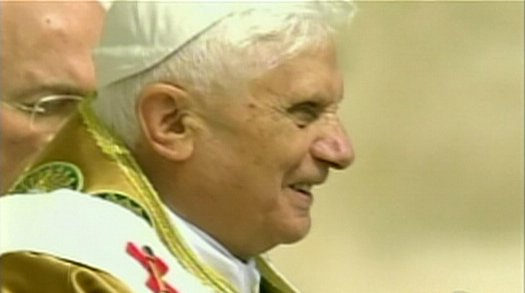
With the resignation of Pope Benedict XVI on Monday, Feb. 11, the Vatican has been presented with a unique and crucial opportunity to alter the worldwide perception of the Roman Catholic Church.
For decades now, the Church has borne the brunt of scandals, betrayals, and mistakes with little of a positive nature to show for it. Rome has been criticized (in many cases, rightly) for its sometimes shoddy and incomplete connection and communication with the rest of the world.
The resignation of Benedict XVI, while a challenging and unprecedented event for the Church in many ways, has the potential to change that dangerous and damaging trend.
A pope has never resigned for health reasons in the history of the Church, and the last pope to resign for any reason was Pope Gregory XII in 1415.
The Vatican is often close-mouthed about its own affairs, but if there was ever a time to open up, that time is now. Thus far (at this writing, less than 24 hours since the news broke) Rome has been exceedingly vague about the “health problems” that have led Pope Benedict to resign. This is not a suggestion that anyone is lying about Benedict’s motivations – only that it would do no harm to explain fully and precisely what elements those motivations contain.
The fact that news of the pope’s resignation broke only because a journalist attending his early-morning meeting with a small group of cardinals could understand Latin, and was not first released through any official channels, is yet another example of the communications arm of the Church being a step behind. It also implies a disconnect between the Holy See and the media that it would certainly be to Rome’s advantage to correct.
Benedict’s eight-year papacy has been marred by its share of scandal, and most observers would be hard-pressed to find an example of the Church improving its situation through the manner in which it communicated its positions. The obvious example is the sex abuse scandal that has decimated the Church over the last decade, and which represents a colossal failing on the part of the hierarchy to respond in a clear, decisive, and timely manner.
In 2010, the Holy See met with more controversy and confusion when Benedict himself spoke out on the use of condoms to combat AIDS. As part of a book-length interview, the pope seemed to concede that the use of condoms might be permissible in the fight against HIV/AIDS. Many saw the incident as yet another example of the confusion engendered by the Church and its teachings.
My purpose here is not to judge or comment extensively on any of the particular teachings of the Roman Catholic Church.
Rather, I want to suggest that now is the opportune – essential, even – moment for the Church to ensure that it is communicating its positions clearly, openly, and in a way that is accessible to Catholics and non-Catholics alike.
The Catholic Church expresses a deep desire and need for humility among its members. For the Church in Rome, now is the time to reinvigorate an observance of this same humility. The Church itself is a fallible human institution, and there is no shame in acknowledging that fact, especially if it makes the body of the Church as a whole better. While the resignation of Benedict XVI as pope is unprecedented, that does not mean it must be cast in a negative light. However, the seemingly habitual passivity of the Vatican when it comes to matters of ecclesiology and the faithful is cause for concern.
Certainly, the faithful have a responsibility to seek out knowledge and understanding of both the institutional Church and its teachings. The Church itself, then, must fully embrace its similar responsibility to do more than simply exercise the “because I said so” model of teaching or explanation of events.
The Church and its leaders are the shepherds of the faithful on earth, and there is no more crucial time than now to wholeheartedly embrace that truth.

